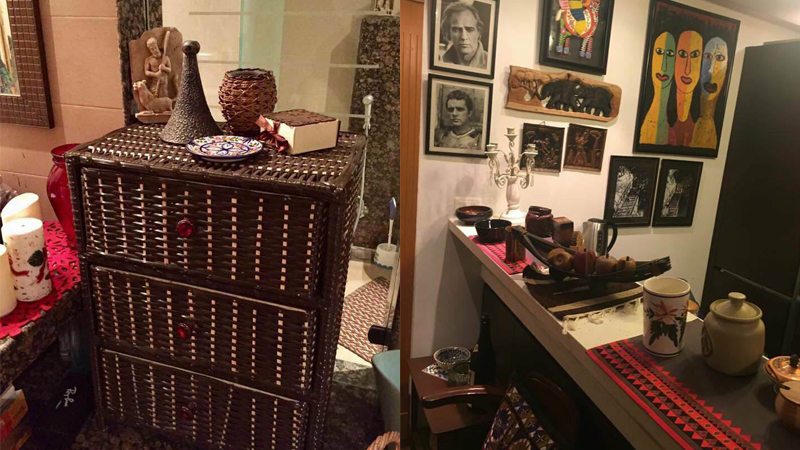 Faseeh Bari Khan, who is a popular drama writer of Pakistan, is known for representing a common culture through his works.
Faseeh Bari Khan, who is a popular drama writer of Pakistan, is known for representing a common culture through his works.
Be it ‘Quddusi Sahib Ki Bewah’, ‘Behkawa’, ‘Khatoon Manzil’ or ‘Mohabbat Jaye Bhaarr May’, the lives of people residing in the alleys of Karachi have been brought to the front. Showing perseverance, Faseeh Bari Khan has decided to show the Walled City of Lahore in his upcoming project.
When one visits Faseeh’s place, the furnishing of the house turns out to be in synchronisation with the stance the writer takes in his dramatic works.
Elegant lights shine through classy lamps, whereas the house maintains a sombre look.
Elegant lights shine through classy lamps, whereas the house maintains a sombre look overall
The wallpapers chosen have delicate patterns on them, and are coloured golden, which forms a beautiful contrast with the brown-coloured decoration pieces placed in every corner such as statues, vases, bowls, plates and boxes. Along with tables and chairs crafted out of fine, shining wood, the wall-hangings also appear to be dainty specimens of woodcraft, some being profiles and some being mirrors framed with carvings of floral designs.

Tapestries on cushions, rugs and carpets are of the same style, reflecting a consistence and a passion for eastern tradition.
What else! Bookracks do not fail to make their place in this house, furnished in a refined manner. An absence of books would have been a disappointment and had inclined us to call it a superficial decoration. Books had to be there. There are racks made out of wood and racks made out of bamboo. A book or two lying in various corners is a proof of the books being opened and read, which only book-lovers can tell is one of the evidences of a bibliophile’s house.

On the whole, Faseeh’s dwelling is a fine exhibition hall where no such piece makes its place which has no class in it, and which does not represent a certain idea or era.
The writer can be reached at m.ali_aquarius85@yahoo.com
Published in Daily Times, December 18th 2017.